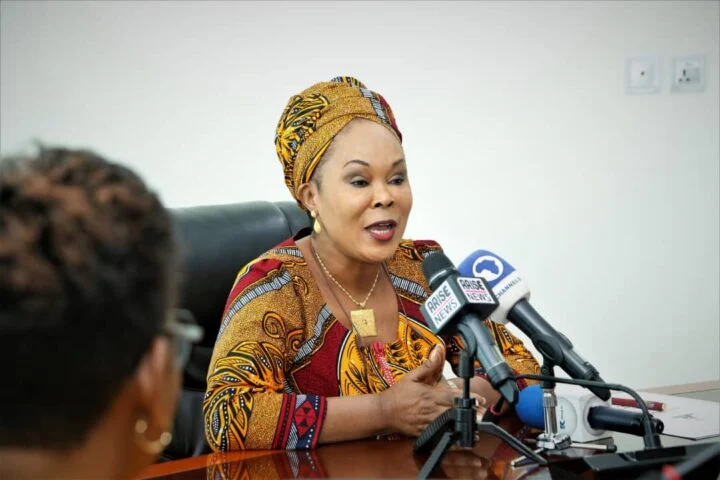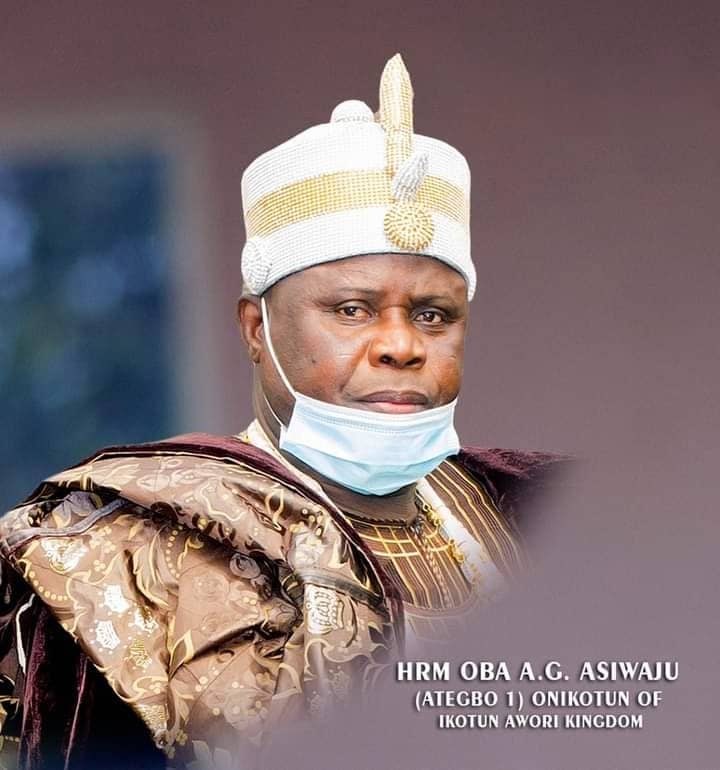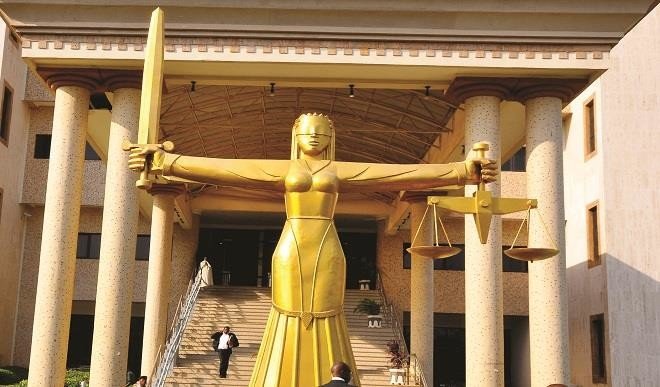The Intelligence Response Team (IRT) of the Inspector General of Police that abducted FIJ’s Daniel Ojukwu is accusing him of violating the 2015 Cybercrime Act.
Ojukwu has been detained at the State Criminal Investigation Department (SCID), Panti, Lagos, since Wednesday.
Since its enactment in 2015, Nigeria’s cybercrime act has built an infamous reputation as a go-to weapon employed in the intimidation and unlawful detention of journalists.
Accusing an FIJ reporter of violating this controversial act and using it to steal a professional journalist off the streets of a major Nigerian city is simply a move from a familiar playbook.
What is the 2015 Cybercrime Act, and why is it so easily weaponised to harass journalists working in Nigeria?
READ MORE: Police Abduct FIJ Reporter Daniel Ojukwu ‘On IGP’s Orders’
INSIDE CYBERCRIME ACT
The 2015 Cybercrime Act is Nigeria’s working legal, regulatory and institutional framework for the prohibition, prevention, detection, prosecution and punishment of cybercrimes in the country.
When the National Assembly passed the act, it claimed that this piece of legislation would also ensure the protection of critical national information infrastructure, computer systems and networks, electronic communications, data and computer programs, intellectual property and privacy rights.
The 2015 Cybercrime Act does not provide a single sustained definition of what a cybercrime is.
It, however, lists and defines most of the practices considered cybercrime in Nigeria. Those appear under the “Offences and Penalties” section.
The act also contains dedicated sections for the prescribed duties of financial institutions, enforcement of the act, conduct of arrests and prosecutions, jurisdiction of the act and international cooperation.
READ ALSO: SPOTTED: Nigeria Police Website for Reporting Cybercrime Is Unsafe
OFFENCES
So, what counts as a cybercrime according to the 2015 Cybercrime Act?
Many offences are listed in the act itself and FIJ lists all of them as follows:
- Offences against critical national information infrastructure.
- Unlawful access to a computer.
- Illegal cybercafé support and connivance.
- System interference.
- Interception of electronic messages, email, and electronic money transfers.
- Tampering with critical infrastructure.
- Willful misdirection of electronic messages.
- Unlawful interceptions.
- Computer-related forgery.
- Computer-related fraud.
- Theft of electronic devices.
- Unauthorised modification of computer systems, network data and system interference.
- Electronic signature forgery.
- Cyber terrorism.
- Fraudulent issuance of e-instructions.
- Failure to report cyber threats.
- Identity theft and impersonation.
- Child pornography and related offences.
- Cyberstalking.
- Cybersquatting.
- Racist and xenophobic offences.
- Attempt, conspiracy, aiding and abetting.
- Importation and fabrication of e-tools.
- Breach of confidence by service providers.
- Manipulation of ATM/POS terminals.
- Employees’ refusal to return passwords or other electronic assets on employer’s request.
- Phishing, spamming, spreading of computer virus.
- Electronic card fraud.
- Dealing in the card of another.
- Purchase or sale of the card of another.
- Use of fraudulent devices or attached e-mails and websites.
Some of these offences carry penalties as tough as 10 years imprisonment and fines as high as N25 million.
PART VI – ARREST, SEARCH, SEIZURE AND PROSECUTION
For one to be arrested under the 2015 Cybercrime Act, Nigerian law enforcement must follow the procedures laid down in the act.
To secure an arrest, the Cybercrime Act states that a law enforcement officer may “apply ex-parte to a Judge in chambers for the issuance of a warrant for the purpose of obtaining electronic evidence in related crime investigation”.
“The Judge may issue a warrant authorising a law enforcement officer to-
“(a) enter and search any premises or place if within those premises, place or conveyance – (i) an offence under this Act is being committed; or (ii) there is evidence of the commission of an offence under this Act; or (iii) there is an urgent need to prevent the commission of an offence under this Act.
“(b) search any person or conveyance found on any premises or place which such authorised officers who are empowered to enter and search under paragraph (a);
“(c) stop, board and search any conveyance where there is evidence of the commission of an offence under this Act;
“(d) seize, remove and detain anything which is, or contains evidence of the commission of an offence under this Act;
“(e) use or cause to use a computer or any device to search any data contained in or available to any computer system or computer network;
“(f) use any technology to decode or decrypt any coded or encrypted data contained in a computer into readable text or comprehensible format;
“(g) require any person having charge of or otherwise concerned with the operation of any computer or electronic device in connection with an offence under this Act to produce such computer or electronic device.”
The court will approve the warrant request if it is convinced that the warrant is meant to investigate any cybercrime offence stated in the act, prevent an offence or prevent interference with investigative processes.
All of this is subject to the provisions of the Constitution of the Federal Republic of Nigeria. This means that, for example, the fundamental human rights of the suspect for whom a warrant is obtained must be respected throughout the prosecution process.
READ ALSO: Police Begin Persecution of FIJ for ‘Cybercrime’, Summon BoT Chair to Abuja
A SECTION ONCE EXPLOITED
Section 24, titled ‘Cyberstalking’, was often quoted when law enforcement agents arrested a journalist.
The section itself was known as an abused section of the act, easily exploited by the authorities to prey on the press. It once read:
“Any person who knowingly or intentionally sends a message or other matter by means of computer systems or networks that (a) is grossly offensive, pornographic, or of an indecent, obscene, or menacing character or causes any such message or matter to be so sent; or (b) he knows to be false, for the purpose of causing annoyance, inconvenience, danger, obstruction, insult, injury, criminal intimidation, enmity, hatred, ill will, or needless anxiety to another or causes such a message to be sent: commits an offence under this Act and shall be liable on conviction to a fine of not more than N7,000,000.00 or imprisonment for a term of not more than 3 years or to both such fine and imprisonment.”
Nigerian authorities have once used the cyberstalking section to justify the arrest of Saint Mienpamo Onitsha, the founder of online broadcaster Naija Live TV. On October 10, 2023, some police officers arrested Onitsha in the home of his friend Charles Kuboro James in Yenagoa, Bayelsa State. The officers detained Mienpamo overnight before flying him out of his hometown to Abuja and charging him with cyberstalking and defamation.
Ayodele Samuel Oloye, the founder of Taraba Truth and Facts Newspaper, was arraigned before a court on November 29, 2022, for “inciting the public against the governor and defamation of character”. Oloye had only reported the plight of teachers who were owed 14-month salaries on a programme.
Agba Jalingo, the publisher of the online newspaper Cross River Watch, spent 174 days in detention for a story he reported in 2020. He was arrested and charged with felony and terrorism for a story published on the alleged diversion of state funds by the Cross River State Government. The story’s only connection to cyberspace was its online publication.
The police summoned Bukky Shonibare, the chairman of FIJ’s Board of Trustees, to Abuja in March to answer questions about alleged cybercrime. After the police interview was done, they told Shonibare to produce ‘Fisayo Soyombo, the founder and editor-in-chief of FIJ.
Some Civil Society Organisations praised the ammendment of Section 24 in March.

After ammendment, Section 24 reads: “any person who knowingly or intentionally sends a message or other matter by means of computer systems or network that (a) is pornographic or (b) he knows to be false, for the purpose of causing a breakdown of law and order, posing a threat to life or causing such messages to be sent.”
Other sections of the 2015 Cybercrime Act ammended were Act No. 17, Section 17, Section 21, Section 22, Section 27, Section 30, Section 37, Section 38, Section 41, Section 44 and Section 48.
The ammendments ought to make it more difficult to mischaracterise what the act says enough to be abused.
Now, law enforcement has quoted a violation of the 2015 Cybercrime Act when asked why Ojukwu was abducted and detained.
Subscribe
Be the first to receive special investigative reports and features in your inbox.















